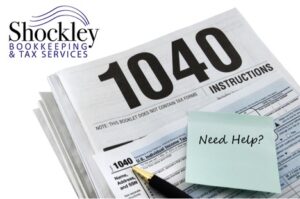Everyone got a little bit of a buffer on their tax due date this year, with the usual April 15th deadline pushed to Monday, April 18th in observance of Emancipation Day – although Emancipation Day is only a holiday in Washington, D.C. However, April 18th has come and gone, and those still dallying at the post office are officially late, never mind those whose taxes are still sitting on their accountant’s desks.

Remember, tax payments work by the mailbox rule – as long as your return is postmarked by USPS or a private delivery service like FedEx by the date due, they are considered on time.
Late Payment Fast Facts
First, it’s important to note that not all taxes are due on the typical April 15th due date. For some business types, taxes are due even earlier. For corporations with a December 31st year-end, for example, taxes must be filed by March 15th. LLCs and partnerships, however, get until April 15th. Another reason to make sure you know what entity type your business is registered as is because different entity types are placed in different tax brackets.
No matter what type of entity your business is, however, the amount you’ll pay for filing late will grow the longer you wait. Typically, penalties grow by the month or part of a month that you’re late by, so watch the calendar as you get everything in order to avoid tacking on an additional month.
There are two major types of penalties your small business may face: a failure to file penalty or a failure to pay penalty. The first penalty means that the IRS didn’t get anything from your business at all – no paperwork was filed. The second means that while you did file paperwork and potentially even pay part of the amount due, you didn’t pay the entire amount.
Although these are separate penalty types, the deadline for filing and the deadline for payment are the same date, and the failure to file penalty is generally more severe. Furthermore, you can be assessed both penalties.
Rules For LLCs And Beyond
A large proportion of small businesses are registered as LLCs, as this offers the greatest amount of protection in the event of financial trouble. LLCs are assessed a penalty based on the number of months the filing is late and the number of managing members. The maximum monthly fee is $195 and you can’t be fined for more than a twelve-month period.
To reach the total late-filing penalty, multiply $195 by the number of months or partial months your filing is late, and then multiply that amount by the number of managing members. The more managing members in your LLC, the higher your fine can become.
For C- or S-corporations, late payment penalties are more variable and tend to depend on how much money is overdue. These calculations become complex quickly and require the trained eye of a corporate accountant. And even if your corporation doesn’t owe any taxes, be sure to file any required informational returns. Even though these may not be accompanied by money, the IRS still expects proper documentation.
IRS Discretion
Your late filing penalties can add up quickly, but there’s some forgiveness outside the formal tax regulations. This primarily comes in the form of “first-time abatement.” If this is the first time you’ve filed your small business taxes late, the IRS can choose not to impose any penalties.
The IRS is more forgiving than you might expect in granting first-time abatements. Most taxpayers are granted this forgiveness when needed. It isn’t in the best interest of the IRS to bury small businesses under late penalties when they could work towards a collaborative resolution to overdue payments.
Additionally, since late filing and late payment penalties are separate, be sure to file your taxes, even if you don’t have the money on hand. This will eliminate late filing penalty accrual and your accountant may be able to help you work out a payment plan with the IRS or take out a suitable loan to cut off late payment fees before they start.
Accountant Extensions

Filing extensions can’t be submitted at the last minute, however, which is why you need to remain in conversation with your accountant about this possibility. If an extension request is submitted too late, you may still be subject to penalties.
Late Payment Justifications
Finally, you may be able to avoid late filing penalties if your small business is able to offer a compelling reason as to why it was unable to file on time. This applies outside of both first-time abatement and official extensions. Again, your accountant is a valuable asset in this process as they will be able to detail reasons acceptable to the IRS. This may require additionally documentation, but that extra effort is worthwhile if it will save your hundreds or thousands of dollars in penalty fees.
The Shockley Advantage

At Shockley Bookkeeping & Tax Services, we know how to navigate IRS deadlines and regulations to your benefit through comprehensive financial management. From payroll to tax preparation, we’ll be by your side. Contact us today to discuss your business’s needs and say goodbye to tax penalties.
